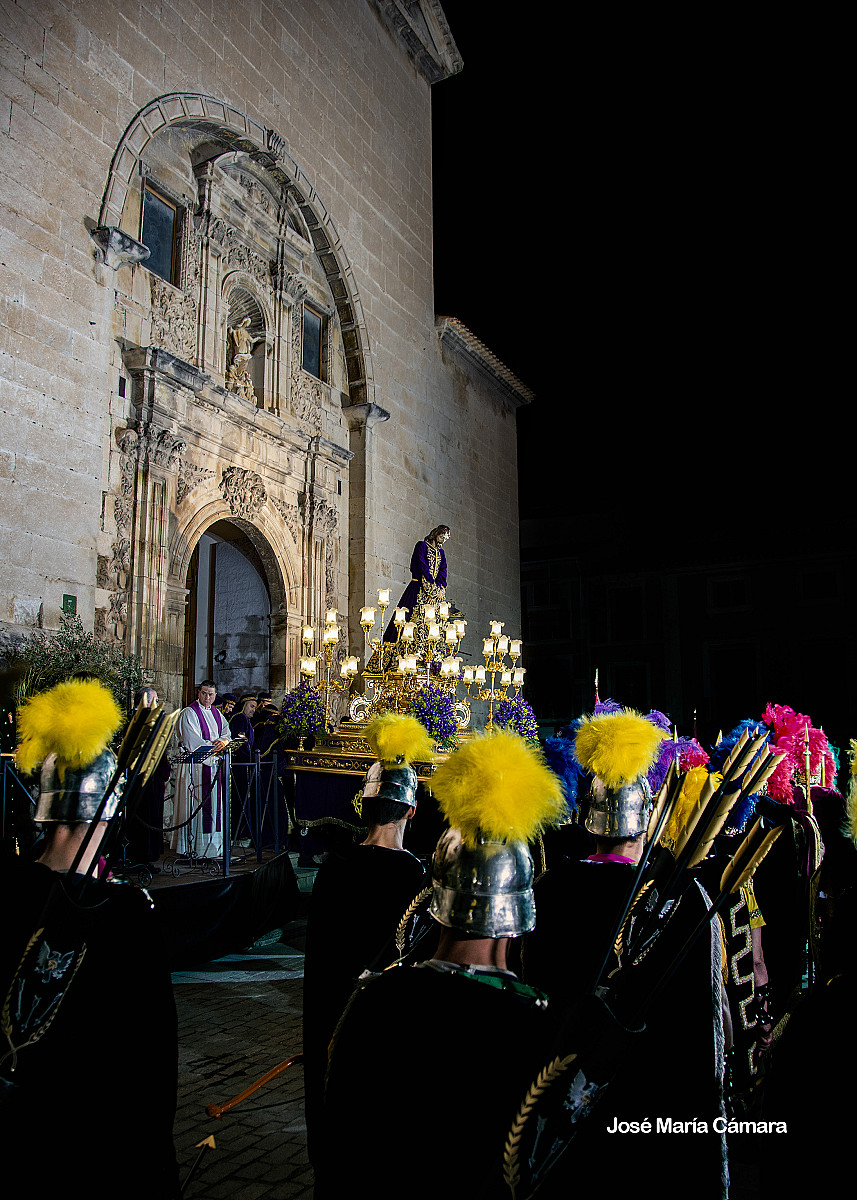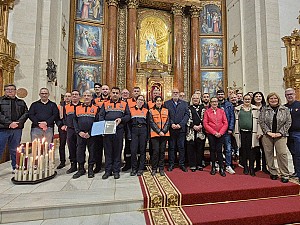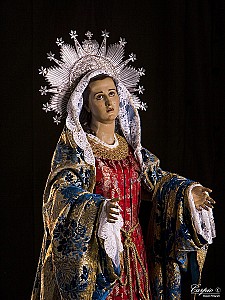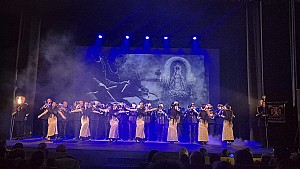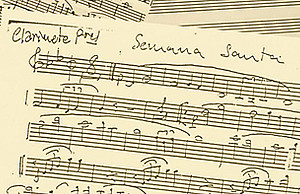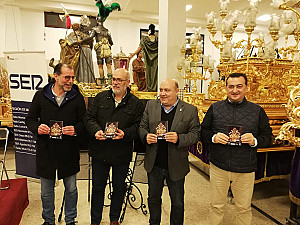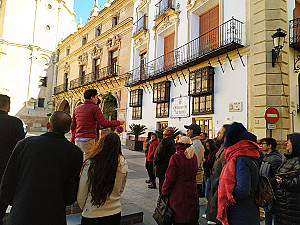The purpose was always to adapt the Car of the Arrest from a new visual perspective, and provide it with live music, being aware of the importance of music in the Levantine Holy Week as a sensory ornament of the evangelical plot, trying at all times not to lose its essence, meaning and symbology.
The Prendimiento, one of the most unique emblems of Holy Week in Cieza for more than three centuries, had been using (with great success) since its remodeling in 1996 by José Rogelio Fernández several pieces of classical works of sacred music as a musical complement. In 2014, the musician from Ciez, Antonio Salmerón Morote, composes a piece of music for the moment of entering the Plaza Mayor of the Tercio Romano del Santo Sepulcro. The presence of this work made evident the need for a complete acoustic reconstruction of the Arrest, with its own musical work.
A dramatic and spectacular work was sought, which would highlight the theatricality of the representation and the different moments and passages that follow one another, where an almost lysergic serenity and calm alternate with the force of the flashes of fire, at the entrance to the Plaza del Tercio Romano, and the moments of tension immediately after it, where the Nazarene is guarded towards his ill-foreseen end.
We were without a doubt before a work comparable to a Film Soundtrack, a recreation typical of a "Roman film", a type of cinema where music would take on special relevance, where temporality was always conferred on the story, without losing the essence of Ciezano, dramatic arrest, but of great beauty both in its passages with an emotional climax and in those of increasing tension.
The objective was to make it possible to naturally associate the visual part with one's own symphonic work, without ever abandoning the rhythm of the music that unites the sequences; that it had delimited the different moments through which the Arrest Car passes, where there is room for the passages of placid melodies in the Lord's Supper or in Gethsemane, and also those of emotion and uncertainty during the Arrest Passage and the overwhelming force end of the arrest of Jesus, an almost heroic moment, in which there is even a triumphalist derivation of the Roman Tercio.
All the conditions of a “great commission” were present, and in front of it, with luck, we had the contemporaneity and the countrymanship of the perfect musician to carry it out: Roque Baños. That of an author who has known how to put melody to the most diverse stories in the cinema, some of them epic stories very similar to what is represented in Cieza's El Prendimiento. Because as the son of neighboring Jumilla, he knows the value of Holy Week and the music in it, founded in this land by Julián Santos from Jumilla and Gómez Villa from Ciez, whom Roque has been performing since childhood, and in the Santo's case, even re-harmonizing his work for Holy Week in Jumillion.
It was not difficult to convey the idea to Roque, perhaps because his memory inevitably went to those band days, where the box "cut" and "sent" Gómez Villa's Cristo del Perdón. As he said from a lost corner of Los Angeles; "In Jumilla, in Cieza..., musicians are made in processions." And without denying his illusion of conquering a new musical homeland and daring with a new genre, he began to write, as he defined it, "his film of Romans". A film that he began to imagine and that on Holy Tuesday of 2019 he filled his retinas with weapons and smoky torches igniting the ciezana night under the clarity of a moon avid for passion. From that same evening, it became clear to him that the tense calm of Ciez's sounded like an adage, a sonorous temperance, and that the sudden turn of events had to overflow with categoricalness, an epic moment that had to be captured with all the force of the weight of History.
Trained at the Berklee College of Music in Boston (United States), Roque Baños studies "Composition and Direction", specializing in "Music Composition for Film", winning numerous awards, including the Robert Share Award for demonstrating the highest dramatic level. musical in the area of film music composition. He graduated with the distinction of "Summa Cum Laude" in the specialties of Composition for film music and Jazz interpretation. He is the author of more than 60 soundtracks for film and television, and a regular at the Goyas Awards, in which he has won the Award for Best Original Score three times.
Roque's creative talent and his career in the composition and orchestration of descriptive music make him combine like no other the time codes corresponding to the different passages of El Prendimiento, being able to skillfully link, in a logical and coherent way, the different musical blocks, without at any time diverting attention from the plot moment or losing the historical dimension of the Auto. And thanks to his vast filmography and his mastery, he endows the work with the appropriate themes, textures, melodies and instruments, and above all with his own character, which delves into the roots of the Levantine style, with a structural knowledge of the music of procession under the prism of those who grew musically in the lap of a band, of a band that put music to the processions.
Perhaps Roque Baños has gone on, without knowing it, to swell the legend of the Tercio Captaincy, where with Centellas, El Morena, El Cabo Vázquez or El Flecha, he has known how to search for and arrest Jesús Nazareno, with no more weapons than his scores.
Who are you looking for?
